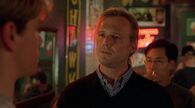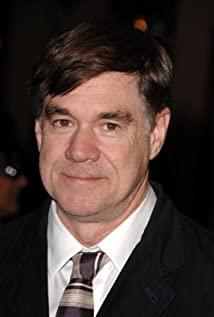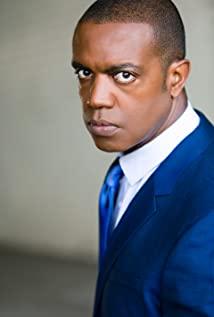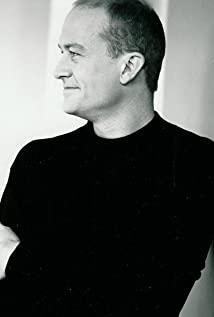This article was written when Robin Williams died. This outstanding comedian committed suicide due to depression on August 11, 2014. This article is posted here on his 4th anniversary.
Note: This article contains "Mind Catcher" spoilers, please read carefully
I never thought that Robin Williams had such a big influence. I recalled the last time such an influential celebrity passed away. It was about Aunt Hui who left the singing memory for a generation. Robin's death was obviously different from Aunt Hui, so they also brought different sadness to people. Although everything is speculation as an outsider, Robin's departure makes it easier to think of another acting genius: Heath Ledger, the Joker in "Batman: The Dark Knight". My understanding of Robin is limited to "Mind Catcher". His performance is impressive, and the lines he reads are even more touching. Of course, this is also due to the excellent director of the script. Today, Robin left in depression. It is really embarrassing to think of the Good Will Hunter he created.
"Mind Catcher", the English name "Good Will Hunting", uses clever puns. Will Hunting is the name of the protagonist in the play. He is a young man with a rare genius, but he is troubled by the shadow of his childhood. He is low on his talents, while doing the lowest level of work, while taking pleasure in mocking and crushing the self-righteous talented students from prestigious schools, and at the same time, his heart is tightly sealed against love. An MIT professor discovered his talents. In order to allow him to work with himself, he began to introduce psychologists to treat his troubles, but these doctors were mocked by him, and the professor had to find old classmates who hadn’t contacted him for a long time. It is the professor of psychology played by Robin. In the end, Robin helped Hunting find a way to reconcile himself.
In my opinion, "Mind Catcher" describes a textbook-like Carl Rogers therapy. Having said that, it is necessary to introduce Carl Rogers, who is known as the "father of humanism" and one of the most influential psychologists in the 20th century. Those who are familiar with Rogers' theories will find that the mind catcher is full of explanations and practices of these theories, and those efforts that did not follow Rogers's words have failed.
When Will first met Sean, a professor of psychology played by Robin, he didn’t put this old man who doesn’t even shave his beard in his eyes. Like the previous psychiatrists, he preempted and started to use his genius for insight. Li, looking for the dead spot in the heart of this guy who dared to come to Tai Sui, he found it. It was an abstract painting by Sean on the wall. He looked at it for a while and said to Sean, "You married the wrong woman." Sean politely warned him to pay attention to his words. Will thought he had hit the target, and instead attacked him. At this moment, Sean rushed forward like a tiger, strangled the young man's neck, pressed him against the wall and said: "If you disrespect my wife anymore, I will kill you, I swear." Unexpectedly, Sean's anger did not stop the treatment from beginning to end, but set the cornerstone for the doctor-patient relationship.
From Rogers' point of view, Sean compared with the previous psychiatrists who were easily overturned by Will and confirmed one sentence: not being the real self is not beneficial to treatment. This is Rogers’s original words, expounded in his speech "Read Me" when he was seventy-five years old, and is a summary of his life wisdom. Sean actually didn't do anything, just made the most normal reaction of an ordinary person. Will held his genius blade invincible, and when he poked at the bearded old man, the old man did not hide his pain, and did not To perform, pretend to be a person who can hold everything and be inclusive of all rivers, but unscrupulously showed his weakness. Facing such a person, Will's bayonet lost its goal. Speaking of this, I can't help but think of Rabbit (Eminem) in "8 miles". His final counterattack Rap is to explain all his shortcomings and make his opponents unable to speak. After reading this episode of "Mind Catcher", I was thinking, isn't Rogers's view of common sense in the American therapeutic world? The stupid appearance of these doctors copying dogma reminds me of Kelly Chen in "Infernal Affairs".
With a few quotes from Rogers, you can see the Rogersist color of "Mind Catcher":
I find that my work is more effective when I can listen to myself with an attitude of acceptance and be able to be who I am. I feel that I can "be" me better. I have become easier to accept that I am by no means perfect, and I cannot act as I want at all times. ﹡I changed when I accepted the true self! ! ﹡Accept the true self, and the relationship will become real.
Opening up channels so that others can communicate with myself emotionally and privately perceives the world to enrich myself. Reduce unnecessary fear and defense
After sending Will away, Sean watched for a long time in front of his painting, because Will actually told part of the truth: this painting shows the pain a woman brings to him, and this is what he has been reluctant to face before. of. Sean changed at this moment, and the wound in his own heart began to repair. Therefore, treatment is not one-way, but two-way. In a sense, treatment does not exist, but only heart-to-heart communication, which will change both parties. This view has considerable influence in the field of psychotherapy. The famous contemporary American psychiatrist Owen Yaron, in his psychological inference novel "When Nietzsche Cries", made up a fictional conversation therapy for Nietzsche that lasted several months. The attending physician was the mentor of Freud, the father of psychoanalysis, Dr. Blair. When the two first came into contact, they each wore heavy armor and fought fiercely. They always wanted to capture their opponents "unharmed", but gradually realized that it was the only way to show their heart. The most powerful weapon, the hearts of the last two hugged after fierce melee, and each walked out of the pain and ushered in a new life. It may be seen that Owen Yaron agrees with Rogers' views and methodology.
Sean’s treatment of Wil is fundamentally different from the treatment in the mind of the MIT professor. Professor MIT hopes that the treatment will make Will the person in his mind: use genius in the "right" place, and get Phil just like him. This award is to marry Bai Fumei (there is indeed a standard Bai Fumei who fell in love with Will) and embarked on the pinnacle of life. Sean just hopes Will can be himself. And "becoming yourself" is the core of the Rogers school of theory. In Sean's view, Will is not "ill", but just lost. He despises his genius, and at the same time cherishes it. When he began to realize his loss, Chuckie, the best friend who drank, fought, and did physical work with him, spoke the truth with the simplest but greatest wisdom on the construction site where the excavator was waving his giant hand: "If you are still like me in thirty years, I will kill you, not to intimidate...you are not sorry for yourself, but for me. A person like me, who is fifty years old when I wake up, is still doing this, It doesn’t matter, but you have a million lottery tickets but don’t dare to redeem them. I would rather exchange everything for your genius, and everyone here is the same. You insulted us." This is actually more than what Wittgenstein called "the responsibility of genius." "more powerful, because Will is in a bad cheap own genius (and his co-workers as ) to repay these friends to his trust, loyalty and love - something missing most of his childhood, and it turned out to be friends The biggest damage.
In the process of Will searching for himself, several subplot lines in the movie are also intriguing. One of them is the relationship between the MIT professor Lambeau and the psychologist Sean. The two represent two completely different philosophies of life. Lambeau believes that life should be achieved through "genius + hard work", while Sean believes in "the way of nature" similar to that advocated by Chinese Taoism, but the fundamental difference between the two is not here. It's because Lambeau believes that everyone should be like him, otherwise it is a loser, while Sean believes that everyone is different and should be himself. In the following year, Lambeau had passed the peak of his life and began to decline. His disgust and fear of failure struck again. He could only barely stand on the medal twenty years ago, and thus gave birth to the illusion that Sean was jealous of him. Facts He is the one who is always jealous, and always hopes to win over the Sean he is jealous of. He did it. His fame and social status are not comparable to Sean, but Sean doesn’t take it seriously. I live my way. Own life. Lambeau said: "I have been able to achieve what I am today because of being constantly pushed." Sean points out the pain and fragility behind this sentence: "You are still so afraid of'unsuccess' to this day." I thought, this may be the case. The problem that many people in modern society are facing: losing themselves in the pursuit, and will never be free from fear-the fear of being abandoned by social concepts.
Until the end of the movie, (like most of us) Lambeau did not get out of this shadow, but reached a settlement with his old friend Sean after a fierce quarrel. In the language of drama, this is "contradictory resolution." However, reconciliation is almost the true goal of all psychotherapy. Why people love to listen to stories and happy endings is because it reproduces the process from conflict to reconciliation, and this process is the life path that everyone is experiencing and looking for. After listening to Chuckie's simple and wise words, Will approached Sean, and he ushered in the most important and difficult reconciliation moment in his life: reconciliation with his origin. Just now Chuckie said, "I don't know much, but I know this", while Sean now says, "I don't know much, but I know." He pointed to Wil's file. The photos in it recorded him. The scars left when he was abused by his stepfather in childhood said to Wil, "It's not your fault."
I think that Robin’s 10 consecutive sentences "It's not your fault" and Matt’s dodge and rebuke, and finally wept bitterly, have become an unforgettable classic in the hearts of movie fans. I once sat by the lake in the middle of the night while facing myself I said this to myself while talking about the past (I didn’t watch "Mind Catcher" at that time), and then I repeated this sentence to a friend who was in spiritual pain, and he is getting better now, and I don’t know what I said. Does it bring benefits? I think this may be the most popular and direct interpretation of the "acceptance of oneself" that Carl Rogers has always emphasized. Accepting oneself and reconciling with oneself is almost the first step to open all the knots. In the movie, it has also become last step.
However, in real life, people's minds are far more complicated and dangerous than in movies. Reconciliation is always complicated, slow and difficult, and each cry may only solve a small problem. For modern people, a super-large dose of socializing buries the soul in the ground like volcanic ash. For the inexperienced novice, every journey to explore the heart is like an archaeological excavation. After weeping bitterly, Pompeii may only reveal one tile, but if this point is illuminated by the sun, there is a heavy burden to be laid down, which is of great significance to the parties involved. As a movie, just as "When Happiness Knocks" structurally condenses a success story, "Mind Catcher" also structurally condenses a spiritual growth (reconciliation) story. The complex contradictions of the mind in the real world are abstracted, Simplified, their solutions are correspondingly step-by-step. The most obvious example is when Sean holds Will’s file. Will asks him if he has a similar experience (being abused by his parents). Sean said: "My dad is an alcoholic and he gets drunk. I beat someone at home, and I angered him to protect his mother and brother." This must be the truth, and it gave Will the deepest empathy, which brought opportunities for the final reconciliation that followed. But in real life, it is rare that the therapist and the patient have such similar experiences. From an artistic point of view, we can understand that this design is for a more compact narrative rhythm, but from a psychological point of view, this also makes the whole story seem thin.
Although it is said that the flaws do not conceal the good, but in connection with Robin's departure, this kind of frankness seems more profound. The most valuable quality of Sean in the movie is to dare to be who he is. This is what distinguishes him from the therapists before, and he has the permit to enter the heart of young geniuses. He has a light and deep sense of humor. It stems from a deep understanding of life, which in turn frees him from the fears that people often have, so that he dares to be his true self. And the actor of Chi is an actor. A person who does not understand the power of the sentence It's not your fault cannot perform Robin's performance, but Robin as an actor has not been able to help himself out of the predicament, which is really embarrassing.
Finally, let us end the article with an old proverb: The TRUTH will set you free.
View more about Good Will Hunting reviews











